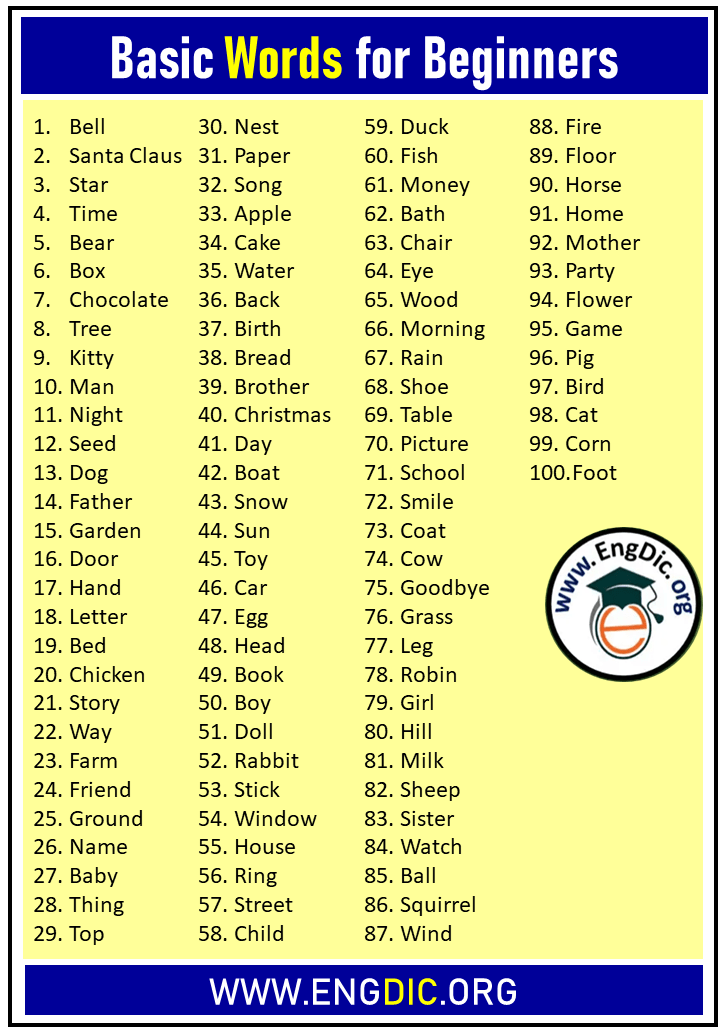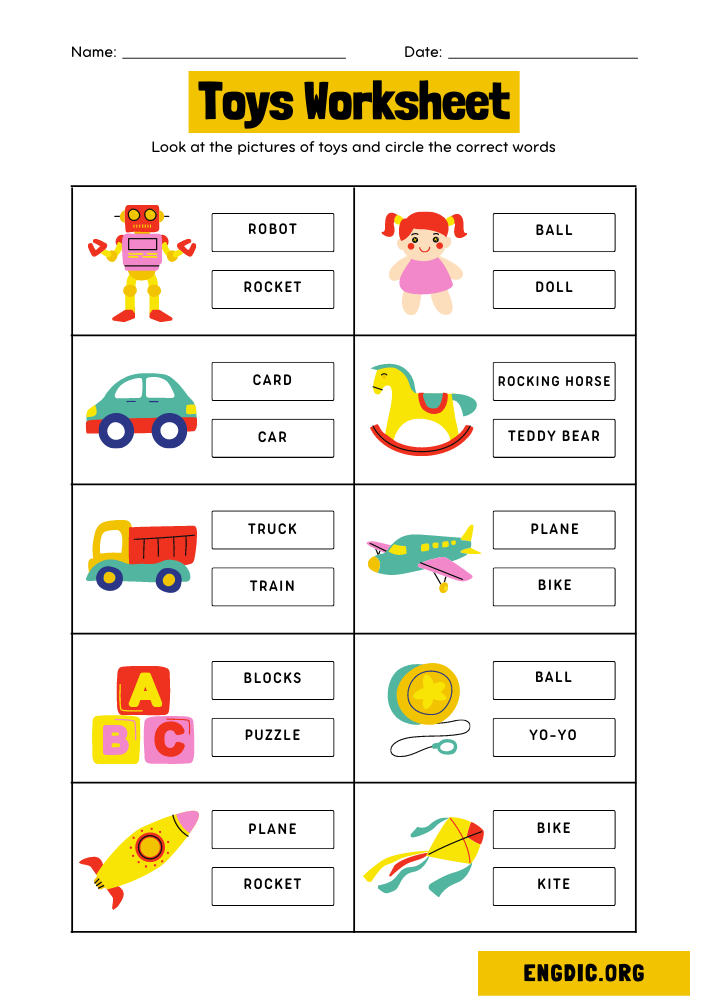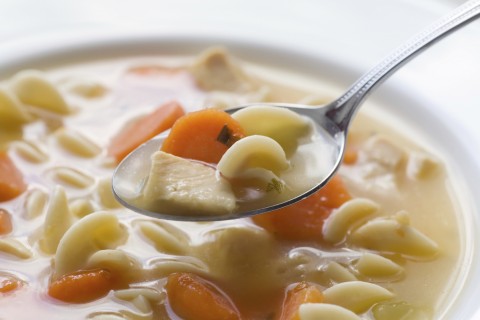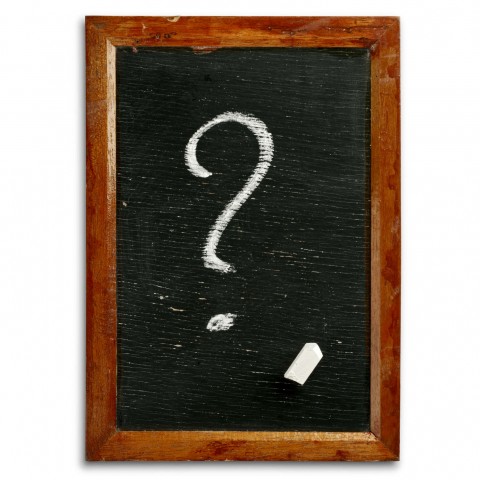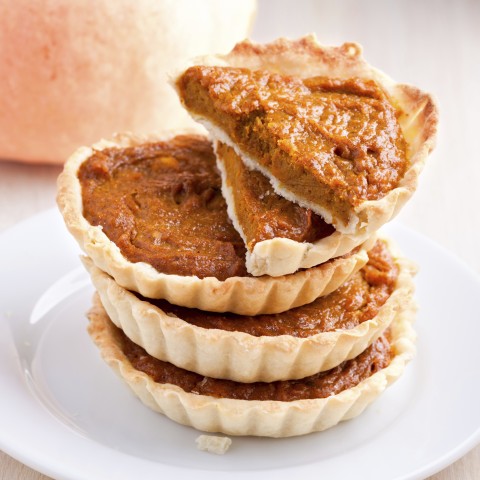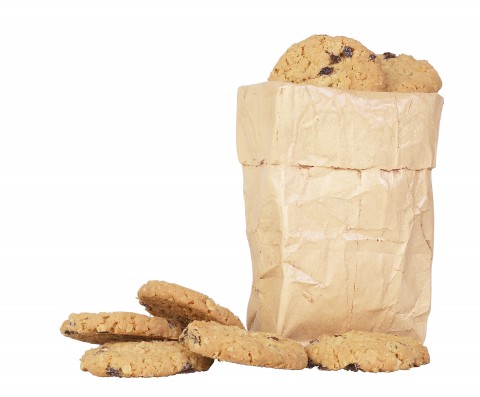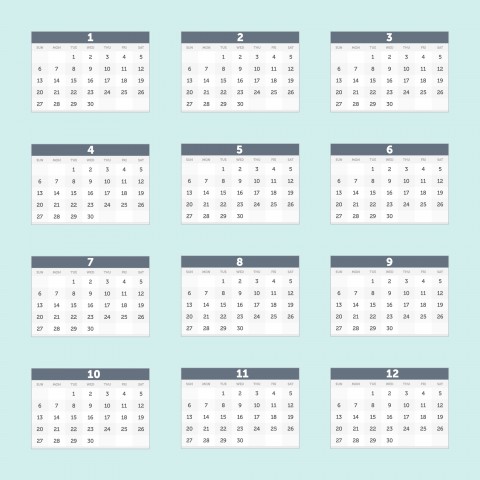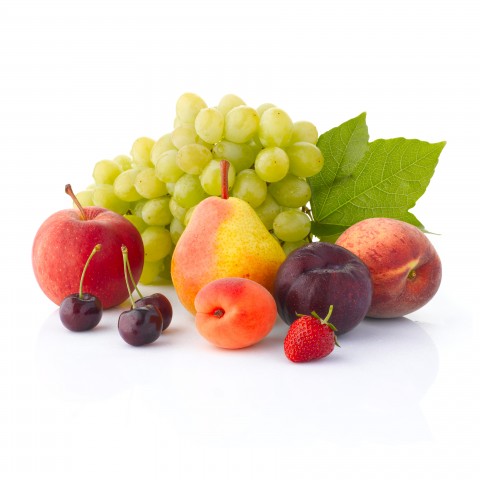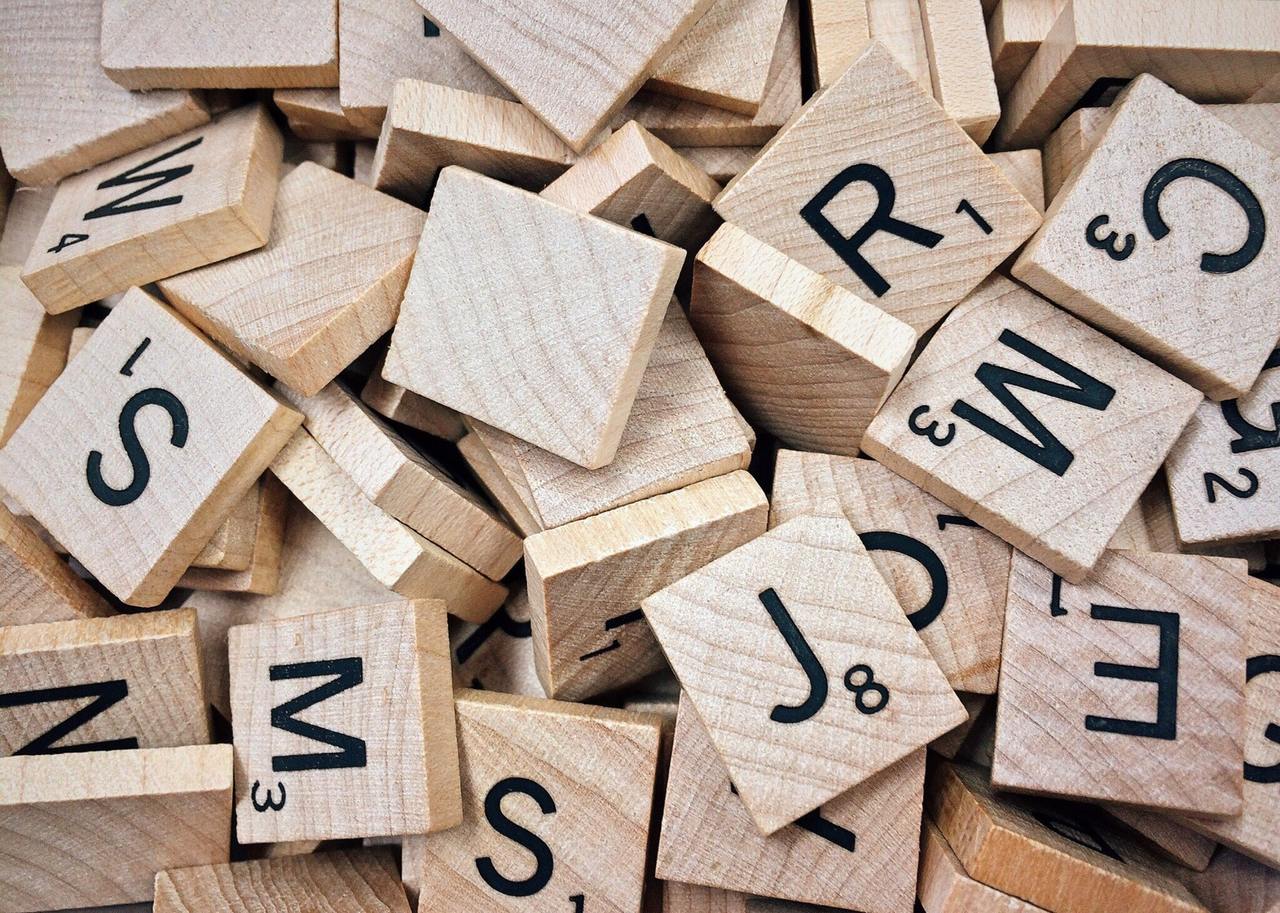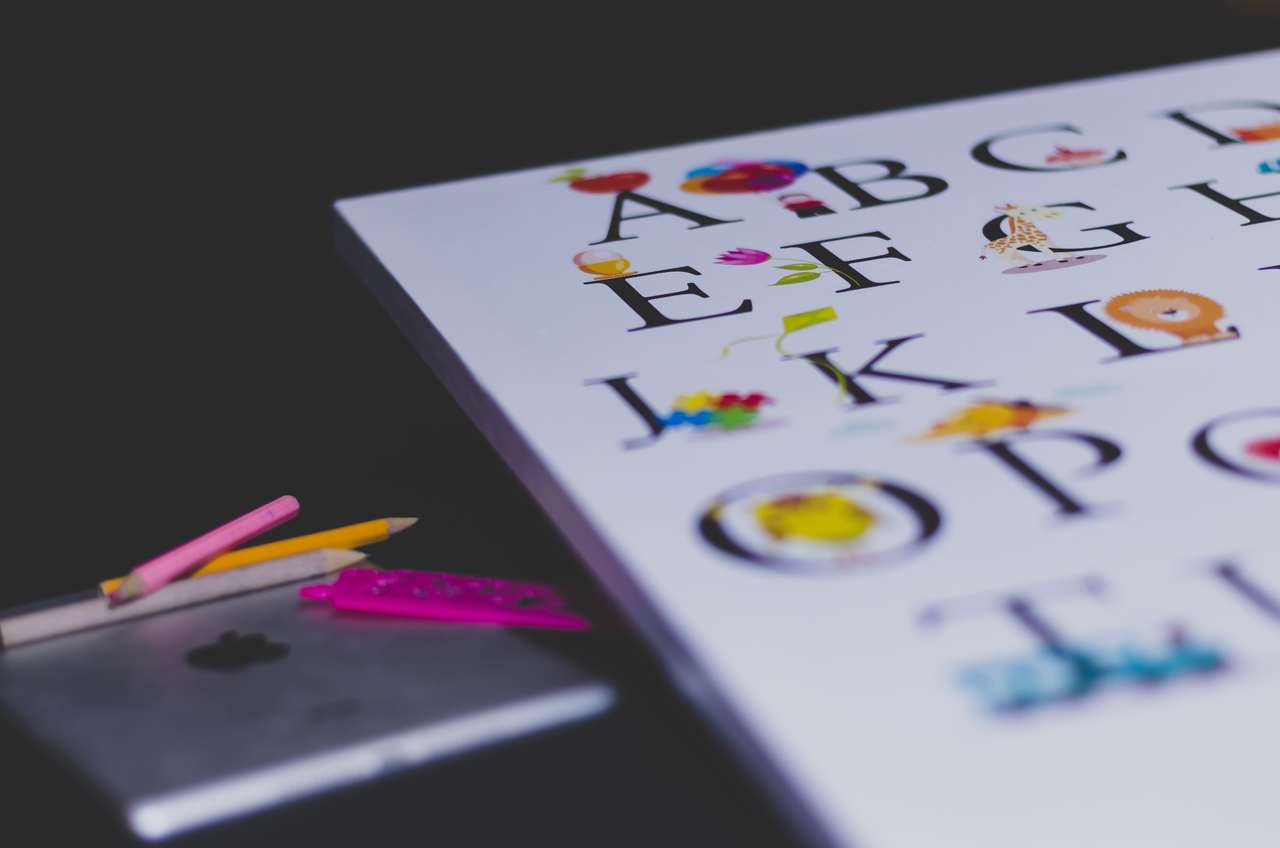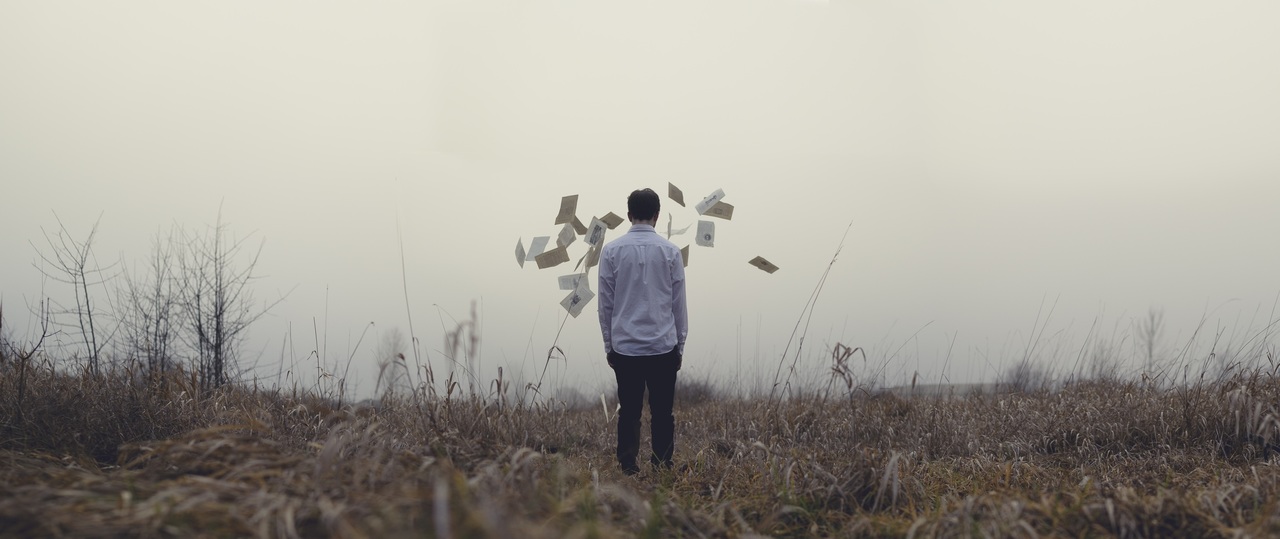- Что включает в себя словарный запас на уровне Elementary?
- Глаголы уровня А1
- Список имен существительных уровня Beginner
- Список слов по теме «Окружающий мир»
- Слова уровня А1 на тему «Семья»
- Английские слова на тему «Социальная коммуникация»
- Слова General Basic Words для туриста начального уровня
- Прилагательные уровня Elementary
- Список важных наречий базового уровня
- Техники увеличения словарного запаса
- Техника «Комментатор»
- Техника «Домашний актёр»
- Техника «Радужный текст»
- В качестве заключения
Чем больше слов знает человек, тем интереснее и осмысленнее его речь. Даже начальный уровень английского, усиленный достаточным словарным запасом, позволит вам чувствовать себя уверенно в любой ситуации, которая может возникнуть в другой стране. Лексика – это отличный инструмент, с помощью которого можно донести свою точку зрения, обратиться за помощью, решить проблему. Давайте разберёмся с английскими словами уровня А1.
Что включает в себя словарный запас на уровне Elementary?
Активный лексический запас на этом этапе включает до 1000 слов и состоит из таких употребляемых частей речи:
- глаголов (verbs),
- имен существительных (nouns),
- прилагательных (adjectives),
- местоимений (pronouns),
- числительных (numerals),
- наречий (adverbs).
В английском предложение строится на основании глагола в правильном времени. Они выражают действия (Olga drinks juice – Ольга пьет сок) и состояния (Denis seems very happy – Денис кажется очень счастливым). Глаголы, в отличие от других частей речи, меняются в зависимости от времени и рода подлежащего.
Не стоит волноваться, если на первый взгляд все перечисленные слова окажутся незнакомыми. Наверняка, вы не раз слышали их в песнях, рекламе или крылатых выражениях. Подобранные в этой статье частицы речи полезны тем, что вы можете сразу же начинать их использовать. Это наиболее легкие и часто применимые English words.
Глаголы уровня А1
Для того, чтобы иметь возможность общаться с англоязычными людьми и понимать в общих чертах их беглую речь – необходимо выучить список главных глаголов английского языка. После того, как вы запомните хотя бы половину нижеперечисленного материала – вы можете начинать общаться с не носителями: индейцами, китайцами, французами, арабами, испанцами. Смысл разговоров в невозможности перейти на русский и в применении простейших слов в бытовых беседах с живыми людьми.
| Глагол | Транскрипция | Перевод |
|---|---|---|
| To be | [tə biː] | Быть |
| To do | [du] | Делать |
| To feel | [fiːl] | Чувствовать |
| To see | [siː] | Видеть |
| To hear | [hɪər] | Слышать |
| To run | [rʌn] | Бежать |
| To get | [ɡet] | Получать |
| To make | [meɪk] | Сделать |
| To cook | [kʊk] | Готовить |
| To sing | [sɪŋ] | Петь |
| To speak | [spiːk] | Разговаривать |
| To say | [seɪ] | Говорить |
| To tell | [tel] | Рассказывать |
| To take | [teɪk] | Брать |
| To sit | [sɪt] | Садиться |
| To stand | [stænd] | Стоять |
| To laugh | [lɑːf] | Смеяться |
| To smile | [smaɪl] | Улыбаться |
| To open | [ˈəʊpən] | Открывать |
| To close | [kləʊz] | Закрывать |
| To love | [lʌv] | Любить |
| To like | [laɪk] | Нравиться |
| To give | [ɡɪv] | Давать |
| To bring | [brɪŋ] | Приносить |
| To breath | [breθ] | Дышать |
| To buy | [baɪ] | Покупать |
| To sell | [sel] | Продавать |
| To forget | [fəˈɡet] | Забывать |
| To believe | [bɪˈliːv] | Верить |
| To have | [həv] | Иметь |
| To go | [ɡəʊ] | Идти |
| To know | [nəʊ] | Знать |
| To think | [θɪŋk] | Думать |
| To come | [kʌm] | Приходить |
| To want | [wɒnt] | Хотеть |
| To use | [juːz] | Использовать |
| To find | [faɪnd] | Находить |
| To work | [wɜːk] | Работать |
| To eat | [iːt] | Есть |
| To drink | [drɪŋk] | Пить |
| To write | [raɪt] | Писать |
| To read | [riːd] | Читать |
| To call | [kɔːl] | Звонить |
| To try | [traɪ] | Пытаться |
| To need | [niːd] | Нуждаться |
| To become | [bɪˈkʌm] | Становиться |
| To put | [pʊt] | Класть |
| To leave | [liːv] | Оставлять |
| To pay | [peɪ] | Платить |
| To play | [pleɪ] | Играть |
| To pray | [preɪ] | Молиться |
| To stay | [steɪ] | Оставаться |
| To mean | [miːn] | Означать |
| To keep | [kiːp] | Держать, хранить |
| To let | [let] | Оставлять |
| To begin | [bɪˈɡɪn] | Начинать |
| To start | [stɑːt] | Стартовать |
| To finish | [ˈfɪnɪʃ] | Заканчивать |
| To help | [help] | Помогать |
| To show | [ʃəʊ] | Показывать |
| To cry | [kraɪ] | Плакать |
| To move | [muːv] | Двигаться |
| To jump | [dʒʌmp] | Прыгать |
| To live | [lɪv] | Жить |
| To die | [daɪ] | Умирать |
| To happen | [ˈhæpən] | Случаться |
| To lose | [luːz] | Проигрывать |
| To hate | [heɪt] | Ненавидеть |
| To include | [ɪnˈkluːd] | Включать в себя |
| To turn on | [tɜːn ɒn] | Включать (о приборе) |
| To turn off | [tɜːn ɒf] | Выключать |
| To continue | [kənˈtɪnjuː] | Продолжать |
| To change | [tʃeɪndʒ] | Менять |
| To wash | [wɒʃ] | Мыть |
| To clean | [kliːn] | Убирать, очищать |
| To lead | [liːd] | Вести |
| To understand | [ˌʌndəˈstænd] | Понимать |
| To watch | [wɒtʃ] | Смотреть |
| To discover | [dɪˈskʌvə(r)] | Исследовать |
| To imagine | [ɪˈmædʒɪn] | Представлять |
| To introduce | [ˌɪntrəˈdjuːs] | Представить |
| To follow | [ˈfɒləʊ] | Следовать |
| To create | [kriˈeɪt] | Создавать |
| To grow | [ɡrəʊ] | Расти |
| To spend | [spend] | Тратить |
| To win | [wɪn] | Выигрывать |
| To offer | [ˈɒfə(r)] | Предлагать |
| To learn | [lɜːn] | Изучать |
| To appear | [əˈpɪə(r)] | Появляться |
| To disappear | [ˌdɪsəˈpɪə(r)] | Исчезать |
| To build | [bɪld] | Строить |
| To break | [breɪk] | Ломать |
| To send | [send] | Посылать |
| To fall | [fɔːl] | Падать |
| To cut | [kʌt] | Резать |
| To achieve | [əˈtʃiːv] | Достигать |
| To communicate | [kəˈmjuːnɪkeɪt] | Общаться |
| To kill | [kɪl] | Убивать |
| To pass | [pɑːs] | Проходить |
| To fly | [flaɪ] | Летать |
| To swim | [swɪm] | Плавать |
| To decide | [dɪˈsaɪd] | Решать |
| To return | [rɪˈtɜːn] | Возвращаться |
| To hope | [həʊp] | Надеяться |
| To explain | [ɪkˈspleɪn] | Объяснять |
| To propose | [prəˈpəʊz] | Предлагать |
| To develop | [dɪˈveləp] | Развивать |
| To support | [səˈpɔːt] | Поддерживать |
| To dance | [dɑːns] | Танцевать |
| To draw | [drɔː] | Рисовать |
| To book | [bʊk] | Бронировать |
| To be afraid | [bi əˈfreɪd] | Бояться |
| To agree | [əˈɡriː] | Соглашаться |
| To check up | [tʃek ʌp] | Проверять |
| To delete | [dɪˈliːt] | Удалять |
| To choose | [tʃuːz] | Выбирать |
| To catch | [kætʃ] | Ловить |
| To ask | [ɑːsk] | Спрашивать |
| To answer | [ˈɑːnsə(r)] | Отвечать |
| To hesitate | [ˈhezɪteɪt] | Cомневаться |
Мы рекомендуем изучать эту базу в самом начале. Как можно эффективно выучить их в правильном контексте? Надо выбрать простой текст, прочитать его, подчеркнуть найденные глаголы и попробовать самостоятельно составить с ними несколько десятков предложений.
Очень здорово помогает в запоминании подборки слов по смыслу. Вы можете самостоятельно сформировать наборы, отталкиваясь от ваших ассоциаций. Например, набор «Любопытный Лис» может состоять из таких близких по сути глаголов: to ask, to discover, to learn, to check up, to think. Еще можно выделить группу «Злобный Волк»: to kill, to cut, to hate, to break или «Очаровательный Зайка»: to love, to dance, to communicate, to smile, to laugh.
Если придумывать эмоциональные названия, то учиться будет интереснее и легче. Конечно же, вы можете составлять подборки и по сфере использования, например «Отношения», «Работа», «Конфликт». Здесь нет правил – важен только ваш результат.
Также вы можете использовать ваш индивидуальный формат запоминания: картинки, мемы, аудиоверсии, видеоролик или текст.
Список имен существительных уровня Beginner
Конечно же, одних глаголов мало, чтобы выразить свою точку зрения. Давайте рассмотрим несколько списков с базовой лексикой А1.
Освоив эти подборки, вы можете тренироваться и составлять примитивные рассказы. На этом этапе идеально подойдут языковые приложения и кроссворды. Можно также играть в развивающие игры для малышей на английском.
Список слов по теме «Окружающий мир»
| Существительное | Транскрипция | Перевод |
|---|---|---|
| air | [ən eə(r)] | Воздух |
| wind | [wɪnd] | Ветер |
| water | [ˈwɔːtə(r)] | Вода |
| west | [west] | Запад |
| east | [iːst] | Восток |
| north | [nɔːθ] | Север |
| south | [saʊθ] | Юг |
| tree | [triː] | Дерево |
| sea | [siː] | Море |
| ocean | [ˈəʊʃn] | Океан |
| rock | [rɒk] | Скала |
| plant | [plɑːnt] | Растение |
| flower | [ˈflaʊə(r)] | Цветок |
| forest | [ˈfɒrɪst] | Лес |
| person | [ˈpɜːsn] | Личность |
| night | [naɪt] | Ночь |
| morning | [ˈmɔːnɪŋ] | Утро |
| day | [deɪ] | День |
| evening | [ˈiːvnɪŋ] | Вечер |
| life | [laɪf] | Жизнь |
| mountain | [ˈmaʊntən] | Гора |
| land | [lænd] | Земля |
| house | [haʊs] | Дом |
| fire | [ˈfaɪə(r)] | Огонь |
| country | [ˈkʌntri] | Страна |
| animal | [ˈænɪml] | Животное |
| bird | [bɜːd] | Птица |
| fish | [fɪʃ] | Рыба |
| insect | [ˈɪnsekt] | Насекомое |
| city | [ˈsɪti] | Город |
| world | [wɜːld] | Мир |
Мы советуем вам подписаться на аккаунты известных людей: Twitter Илона Маска, в котором инженер оставляет колкие твиты с ярким сленгом. Молодежный язык полезен тем, что содержит огромное количество простых слов, которые, тем не менее, могут здорово разнообразить вашу речь:
- Yeet! — Есть! — Используется вместо классического Yes!
- Pretty sus — очень подозрительно.
- Obnoxion – облом, отстой.
Не запрещается зарегистрироваться в Tik Tok – вдруг это окажется вашим самым успешным учебным форматом.
Слова уровня А1 на тему «Семья»
Этот набор нужен тем, кто ещё не умеет рассказывать о себе и своих близких. Однако, чтобы найти друзей и вызывать доверие – очень важно уметь рассказывать о семье и родных.
Обязательно составьте развернутый легкий рассказ про каждого члена семьи или просто подберите под каждое слово ваши ассоциации с вашей семьей. Любые действия с новыми словами помогут вам зафиксировать их в памяти. Поэтому вы можете рисовать, делать схемки, смайлики, записывать голосовые сообщения с вашим вариантом предложения – важна любая осознанная умственная деятельность.
| Существительное | Перевод | Транскрипция |
|---|---|---|
| boy | Мальчик | [bɔɪ] |
| girl | Девочка | [ɡɜːl] |
| mother | Мама | [ˈmʌðə(r)] |
| father | Отец | [ˈfɑːðə(r)] |
| son | Сын | [sʌn] |
| daughter | Дочь | [ˈdɔːtə(r)] |
| baby | Малыш | [ˈbeɪbi] |
| family | Семья | [ˈfæməli] |
| grand mother | Бабушка | [ɡrænd ˈməT͟Hər] |
| grand father | Дедушка | [ɡrænd ˈfɑːðə(r)] |
| children | Дети | [ˈtʃɪl.drən] |
| home | Дом | [həʊm] |
| love | Любовь | [lʌv] |
| apartment | Квартира | [əˈpɑːtmənt] |
| joy | Радость | [dʒɔɪ] |
| nephew | Племянник | [ˈnefjuː] |
| aunt | Тетя | [ɑːnt] |
| uncle | Дядя | [ˈʌŋkl] |
| cousin | Двоюродная сестра или брат | [ˈkʌzn] |
| man | Мужчина | [mæn] |
| woman | Женщина | [ˈwʊmən] |
| child | Ребенок | [tʃaɪld] |
| sister | Сестра | [ˈsɪstə(r)] |
| brother | Брат | [ˈbrʌðə(r)] |
| Relatives | Родственники | [ˈrel.ə.tɪv] |
| friend | Друг | [frend] |
| wife | Жена | [waɪf] |
| husband | Муж | [ˈhʌzbənd] |
| address | Адрес | [əˈdres] |
| happiness | Счастье | [ˈhæp.i.nəs] |
| People | Люди | [ˈpiːpl] |
Для того, чтобы материал усвоился – его необходимо постоянно использовать. Важно не только понимать значение, но и обстоятельства применения. Поэтому, как только вы узнали что-то новое – применяйте на практике: пишите письма друзьям, оставляйте комментарии в социальных сетях, придумывайте посты или сторис с новыми словами. В обучении действует всё, что вам нравится и что получается.
Создайте собственный тред в канале Telegram или в блоге «Как я стал англичанином, не зная ни одного слова» и записывайте каждый день несколько новостей, предложений или шуток.
Классная штука – юморной Twitter, куда можно заносить несколько веселых фраз с новым словом. Кстати, это может помочь вам с продвижением личного бренда и с отслеживанием собственного прогресса. Любая креативность будет только в плюс.
В деле с иностранным языком цель – научиться на нем выражаться грамотно и понятно, а способы достижения этой цели могут разными: от комиксов до сочинения песенок.
Английские слова на тему «Социальная коммуникация»
Если вы планируете общаться на специальных сайтах с англоязычной молодежью, то эти слова вам очень пригодятся.
| Существительное | Транскрипция | Перевод |
|---|---|---|
| phone | [fəʊn] | Телефон |
| question | [ˈkwestʃən] | Вопрос |
| place | [pleɪs] | Место |
| market | [ˈmɑːkɪt] | Рынок |
| order | [ˈɔːdə(r)] | Заказ |
| food | [fuːd] | Еда |
| work | [wɜːk] | Работа |
| communication | [kəˌmjuːnɪˈkeɪʃn] | Общение |
| story | [ˈstɔːri] | История |
| relax | [rɪˈlæks] | Отдых |
| time | [taɪm] | Время |
| word | [wɜːd] | Слово |
| dialogue | [ˈdaɪ.ə.lɒɡ] | Диалог |
| meeting | [ˈmiːtɪŋ] | Встреча |
| week | [wiːk] | Неделя |
| distance | [ˈdɪstəns] | Дистанция |
| club | [klʌb] | Клуб |
| theatre | [ˈθɪətə(r)] | Театр |
| cinema | [ˈsɪnəmə] | Кинотеатр |
| coffee shop | [ˈkɒfi ʃɒp] | Кофейня |
| friendship | [ˈfrendʃɪp] | Дружба |
| behavior | [bɪˈheɪ.vjər] | Поведение |
| attitude | [ˈætɪtjuːd] | Отношение |
| student | [ˈstjuːdnt] | Студент |
| university | [ˌjuːnɪˈvɜːsəti] | Университет |
| union | [ˈjuːniən] | Объединение |
| party | [ˈpɑːti] | Вечеринка |
| date | [deɪt] | Свидание |
| sweetheart | [ˈswiːt.hɑːt] | Партнер, возлюбленный |
| leisure time | [ˈleʒ.ər taɪm] | Досуг |
Слова General Basic Words для туриста начального уровня
Этот список важно читать и изучать всем тем, кто планирует переезд с минимальным знанием языка. Это самые важные слова для туриста с уровнем А1.
| Существительное | Транскрипция | Перевод |
|---|---|---|
| road | [rəʊd] | Дорога |
| ticket | [ˈtɪkɪt] | Билет |
| map | [mæp] | Карта |
| motel | [məʊˈtel] | Мотель |
| highway | [ˈhaɪweɪ] | Шоссе |
| reception | [rɪˈsepʃn] | Регистратура, ресепшн |
| wallet | [ˈwɒlɪt] | Бумажник |
| bank | [bæŋk] | Банк |
| subway | [ˈsʌb.weɪ] | Метро |
| cab | [kæb] | Такси |
| parking | [ˈpɑː.kɪŋ] | Парковка |
| food order | [fuːd ˈɔːdə(r)] | Заказ еды |
| cash | [kæʃ] | Наличные |
| passport | [ˈpɑːspɔːt] | Паспорт |
| permission | [pəˈmɪʃn] | Разрешение |
| lawyer | [ˈlɔːjə(r)] | Адвокат |
| problem | [ˈprɒbləm] | Проблема |
| waiting room | [weɪtin: ruːm] | Зал ожидания |
| transfer | [trænsˈfɜː(r)] | Пересадка |
| bag | [bæɡ] | Сумка |
| suitcase | [ˈsuːtkeɪs] | Чемодан |
| property | [ˈprɒpəti] | Имущество |
| law | [lɔː] | Право, закон |
| police station | [pəˈliːs ˈsteɪʃn] | Полицейский участок |
| price | [praɪs] | Стоимость, цена |
| price list | [praɪs lɪst] | Ценник |
| courier | [ˈkʊr.i.ər] | Курьер |
| delivery | [dɪˈlɪvəri] | Доставка |
| location | [ləʊˈkeɪʃn] | Местоположение |
| route | [ruːt] | Маршрут |
| agreement | [əˈɡriːmənt] | Договор |
| hospital | [ˈhɒspɪtl] | Больница |
| ambulance | [ˈæmbjələns] | Скорая помощь |
Комбинируйте лексику между собой и получайте актуальные варианты для диалогов и общения.
Прилагательные уровня Elementary
Прилагательные необходимы для характеристики предмета, человека, ситуации или действия. Без них невозможно донести законченную мысль и быть до конца понятым. Мы рекомендуем миксовать все единицы речи из нашего материала в коротких отрезках текста, связанных по смыслу.
| Прилагательное | Транскрипция | Перевод |
|---|---|---|
| Afraid | [əˈfreɪd] | Напуганный |
| Angry | [ˈæŋɡri] | Сердитый |
| Asleep | [əˈsliːp] | Спящий |
| Attentive | [əˈten.tɪv] | Внимательный |
| Available | [əˈveɪləbl] | Доступный |
| Basic | [ˈbeɪsɪk] | Базовый |
| Beautiful | [ˈbjuːtɪfl] | Красивый |
| Big | [bɪɡ] | Большой |
| Brave | [breɪv] | Смелый |
| Busy | [ˈbɪzi] | Занятой |
| Calm | [kɑːm] | Спокойный |
| Careful | [ˈkeəfl] | Внимательный, заботливый |
| Cheap | [tʃiːp] | Дешевый |
| Clean | [kliːn] | Чистый |
| Clever | [ˈklevə(r)] | Умный |
| Cold | [kəʊld] | Холодный |
| Comfortable | [ˈkʌmftəbl] | Комфортный |
| Confident | [ˈkɒnfɪdənt] | Уверенный |
| Constant | [ˈkɒnstənt] | Постоянный |
| Curious | [ˈkjʊəriəs] | Любопытный |
| Dangerous | [ˈdeɪndʒərəs] | Опасный |
| Dark | [dɑːk] | Темный |
| Deep | [diːp] | Глубокий |
| Different | [ˈdɪfrənt] | Разный |
| Difficult | [ˈdɪfɪkəlt] | Трудный |
| Dirty | [ˈdɜːti] | Грязный |
| Easy | [ˈiːzi] | Легкий |
| Every | [ˈevri] | Каждый |
| Expensive | [ɪkˈspensɪv] | Дорогой |
| Exact | [ɪɡˈzækt] | Точный |
| Fast | [fɑːst] | Быстрый |
| Fair | [feə(r)] | Честный, светлый |
| Fine | [faɪn] | Замечательный |
| Foreign | [ˈfɒrən] | Иностранный |
| Free | [friː] | Свободный |
| Fresh | [freʃ] | Свежий |
| Full | [fʊl] | Полный |
| Funny | [ˈfʌni] | Забавный |
| Guilty | [ˈɡɪlti] | Виновный |
| Healthy | [ˈhelθi] | Здоровый |
| Hard | [hɑːd] | Тяжелый |
| Helpful | [ˈhelpfl] | Полезный |
| Honest | [ˈɒnɪst] | Честный |
| Hot | [hɒt] | Горячий |
| Hungry | [ˈhʌŋɡri] | Голодный |
| Important | [ɪmˈpɔːtnt] | Важный |
| Illegal | [ɪˈliːɡl] | Нелегальный, незаконный |
| Impossible | [ɪmˈpɒsəbl] | Невозможный |
| Independent | [ˌɪndɪˈpendənt] | Независимый |
| Interesting | [ˈɪntrəstɪŋ] | Интересный |
| Kind | [kaɪnd] | Добрый |
| Legal | [ˈliːɡl] | Законный |
| Little | [ˈlɪtl] | Маленький |
| Lucky | [ˈlʌki] | Удачливый |
| Necessary | [ˈnesəsəri] | Необходимый |
| Normal | [ˈnɔːml] | Нормальный |
| Old | [əʊld] | Старый |
| Opposite | [ˈɒpəzɪt] | Противоположный |
| Perfect | [pəˈfekt] | Идеальный |
| Poor | [pɔː(r)] | Бедный |
| Powerful | [ˈpaʊəfl] | Мощный |
| Possible | [ˈpɒsəbl] | Возможный |
| Quiet | [ˈkwaɪət] | Тихий |
| Rare | [reə(r)] | Редкий |
| Recent | [ˈriːsnt] | Недавний |
| Relevant | [ˈreləvənt] | Релевантный, актуальный |
| Remote | [rɪˈməʊt] | Удаленный |
| Safe | [seɪf] | Безопасный |
| Short | [ʃɔːt] | Короткий |
| Small | [smɔːl] | Маленький |
| Strange | [streɪndʒ] | Странный, незнакомый, чужой |
| Successful | [səkˈsesfl] | Успешный |
| Tasty | [ˈteɪ.sti] | Вкусный, приятный |
| Terrible | [ˈterəbl] | Жуткий |
| Tired | [ˈtaɪəd] | Усталый |
| Warm | [wɔːm] | Теплый |
| Weak | [wiːk] | Слабый |
| Responsible | [rɪˈspɒnsəbl] | Ответственный, надежный |
| Sad | [sæd] | Грустный |
| International | [ˌɪntəˈnæʃnəl] | Международный |
Список важных наречий базового уровня
Английские наречия – самостоятельная часть речи, которая обозначает признак действия и обстоятельства, при которых действие происходит. Оно отвечает на вопросы: как? каким образом? где? почему? Наречия очень украшают речь. Стоит обязательно ознакомиться и запомнить эти слова, чтобы ваш разговор стал красочнее, живее и понятнее.
| Наречие | Транскрипция | Перевод |
|---|---|---|
| Together | [təˈɡeðə(r)] | Вместе |
| According | [əˈkɔːdɪŋ] | В соответствии |
| Again | [əˈɡen] | Снова |
| Always | [ˈɔːlweɪz] | Всегда |
| Beautifully | [ˈbjuːtɪfli] | Красиво |
| Carefully | [ˈkeə.fəl.i] | Осторожно |
| Correctly | [kəˈrektli] | Верно, правильно |
| Especially | [ɪˈspeʃəli] | Особенно |
| Friendly | [ˈfrendli] | Дружелюбно |
| Indeed | [ɪnˈdiːd] | Действительно |
| Above | [əˈbʌv] | Выше |
| Accidentally | [ˌæk.sɪˈden.təl.i] | Случайно |
| Actually | [ˈæktʃuəli] | На самом деле |
| Badly | [ˈbædli] | Плохо |
| Besides | [bɪˈsaɪdz] | Помимо этого |
| Briefly | [ˈbriːfli] | Кратко |
| Certainly | [ˈsɜːtnli] | Конечно |
| Daily | [ˈdeɪli] | Ежедневно |
| Dreamily | [ˈdriː.mɪ.li] | Мечтательно |
| Even | [ˈiːvn] | Даже |
| Eventually | [ɪˈventʃuəli] | В конце концов |
| Foolishly | [ˈfuːlɪʃli] | Глупо |
| Forward | [ˈfɔːwəd] | Вперед |
| Ever | [ˈevə(r)] | Когда-либо |
| Equally | [ˈiːkwəli] | Одинаково |
| Fortunately | [ˈfɔː.tʃən.ət.li] | К счастью |
| Honestly | [ˈɒnɪstli] | Честно |
| Instead | [ɪnˈsted] | Вместо |
| Inside | [ˌɪnˈsaɪd] | Внутри |
| Also | [ˈɔːlsəʊ] | Также |
| Hardly | [ˈhɑːdli] | С трудом |
| Lately | [ˈleɪt.li] | Недавно |
| Less | [les] | Меньше |
| Loudly | [ˈlaʊd.li] | Громко, шумно |
| Nearly | [ˈnɪəli] | Около |
| Never | [ˈnevə(r)] | Никогда |
| Only | [ˈəʊnli] | Только |
| Once | [wʌns] | Один раз |
| Often | [ˈɒfn] | Часто |
| Perhaps | [pəˈhæps] | Возможно |
| Quickly | [ˈkwɪkli] | Быстро |
| Probably | [ˈprɒbəbli] | Вероятно |
| Rarely | [ˈreəli] | Редко |
| Really | [ˈriːəli] | Действительно |
| Sometimes | [ˈsʌmtaɪmz] | Иногда |
| Yesterday | [ˈjestədeɪ] | Вчера |
| Thus | [ðʌs] | Таким образом |
| Somehow | [ˈsʌmhaʊ] | Как-то |
| Soon | [suːn] | Скоро |
| Regularly | [ˈreɡjələli] | Регулярно |
| Somewhere | [ˈsʌmweə(r)] | Где-то |
Техники увеличения словарного запаса
Есть несколько забавных и оригинальных приёмов, чтобы расширить свой активный словарик.
Техника «Комментатор»
Называйте все предметы, действия, характеристики вещей на английском, когда что-то делаете дома. Например, наводите порядок, готовите, складываете одежду. Называйте знакомые вам слова на улице, в магазине, в кино, на выставке. Если нет возможности говорить вслух или вы стесняетесь – заведите блокнот, в котором можно в конце дня писать все слова, которые вам встречались за день. Такие упражнения позволят вам тренироваться каждый день, соотносить слово и его образ, запоминать часто встречающую лексику.
Техника «Домашний актёр»
Выберите любой фильм, сериал или мультик и выключите звук. А дальше попробуйте произносить слова и реплики вместо главных героев на экране. Эта забавная техника повеселит вас от души и постепенно уберет страх устной речи. Поначалу вы будете говорить односложно, затем вы втянетесь в процесс и будете использовать фразы из 5 и более структурных единиц. Очень здорово, если вы будете подбирать лексику под тематику фильма и пытаться отразить сюжет.
Техника «Радужный текст»
Нужен адаптированный художественный текст минимальной сложности, в котором вы выделяете зеленым маркером те слова, которые точно знаете, желтым – в которых сомневаетесь и красным – незнакомые. Затем текст надо несколько раз прочитать вслух, перевести, а потом по памяти назвать зеленые, желтые и красные слова. Зачастую в процессе человек интуитивно догадывается, что означают непонятные слова, а многократное произнесение вслух способствует запоминаю контекста.
В качестве заключения
При работе со словарным запасом очень важно выбрать подходящий словарь. В современных изданиях каждое слово отмечено специальным знаком – A1, A2, B1 и так далее, что означает, кем оно слово чаще всего используется. Самым оптимальным вариантом будет использование официальных источников, например: Oxford Dictionaries, Macmillan Dictionary.
Самое важное в совершенствовании языка – не переживать, что вы знаете недостаточно. Поставьте себе цель – несколько новых слов в день, и через год вы удивитесь, как же хорошо вы разбираетесь в языке.
100 Basic English Words For Beginners! If you’re just starting to learn English, you need to begin with the basics. Memorizing 100 basic English words will give you a great foundation on which to build. And once you know these words, you can start using them in simple conversations. Here’s a list of 100 essential English words for beginners. Start learning them today and you’ll be well on your way to becoming a fluent English speaker!
Table of Contents
Basic English Words For Beginners
- Bell
- Santa Claus
- Star
- Time
- Bear
- Box
- Chocolate
- Tree
- Kitty
- Man
- Night
- Seed
- Dog
- Father
- Garden
- Door
- Hand
- Letter
- Bed
- Chicken
- Story
- Way
- Farm
- Friend
- Ground
- Name
- Baby
- Thing
- Top
- Nest
- Paper
- Song
- Apple
- Cake
- Water
- Back
- Birth
- Bread
- Brother
- Christmas
- Day
- Boat
- Snow
- Sun
- Toy
- Car
- Egg
- Head
- Book
- Boy
- Doll
- Rabbit
- Stick
- Window
- House
- Ring
- Street
- Child
- Duck
- Fish
- Money
- Bath
- Chair
- Eye
- Wood
- Morning
- Rain
- Shoe
- Table
- Picture
- School
- Smile
- Coat
- Cow
- Goodbye
- Grass
- Leg
- Robin
- Girl
- Hill
- Milk
- Sheep
- Sister
- Watch
- Ball
- Squirrel
- Wind
- Fire
- Floor
- Horse
- Home
- Mother
- Party
- Flower
- Game
- Pig
- Bird
- Cat
- Corn
- Foot
Basic English Words for Beginners and Example Sentences
- Answer: She answered the question correctly.
- Ask: He asked if I wanted to join him.
- Call: I called my friend to ask for help.
- Change: I need to change my mind about something.
- Close: He closed his eyes in order to relax.
- Find: He found his way back home in the dark.
- Follow: Follow your dreams and never give up!
- Give: Can you give me a hand with this?
- Help: Can you help me with this project?
- Include: The package includes free shipping!
- Listen: Listen carefully to what I have to say.
- Live: I want to live an adventurous life!
- Look: Let’s look at all our options before deciding.
- Make: She made a delicious dinner for us.
- Move: The dog moved quickly across the field.
- Need: You need to plan ahead for success.
- Open: She opened the door and stepped inside.
- Play: The children were playing in the park.
- Point: I pointed to the correct answer on the board.
- Read: He reads a lot of books every month.
- Say: What did he say when you asked him?
- Share: Let’s share our ideas with each other.
- Show: He showed us his collection of coins.
- Speak: She spoke softly to her little brother.
- Start: It’s time to start a new chapter in life!
- Stop: Stop and think before you make a decision.
- Take: I took a deep breath before speaking.
- Talk: Can we talk about this another time?
- Think: I need to think before making my decision.
- Try: She tried her best to finish the race.
- Understand: Do you understand what I’m saying?
- Use: We can use this tool to fix the problem.
- Wait: We need to wait for the right moment.
- Walk: We should walk instead of taking the car.
- Work: He always works hard for what he wants.
- Write: She wrote her thoughts down in her journal.
- Believe: I believe in the power of positive thinking.
- Bring: Please bring me a glass of water.
- Choose: Choose your words carefully before speaking.
- Come: Come over here and have a seat.
- Carry: She carried her backpack on her back.
- Drive: He drives to work every morning.
- Eat: I like to eat a healthy breakfast every day.
- Feel: How do you feel about this situation?
- Go: Let’s go for a walk in the park!
- Hold: He holds the world record for running a mile.
Basic English Words for Beginners with Pictures
School Words for Beginners
| 1. Teacher |  |
| 2. Student |  |
| 3. Eraser | 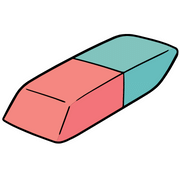 |
| 4. Pen | 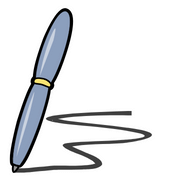 |
| 5. Book |  |
| 6. Desk |  |
| 7. Pencil | 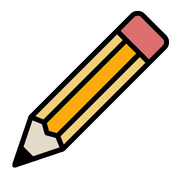 |
| 8. Chair | 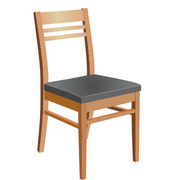 |
| 9. Bag | 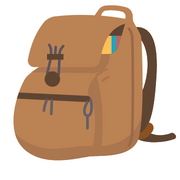 |
| 10. Whiteboard | 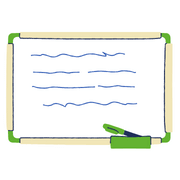 |
Animals Words for Beginners
| 1. Cat |  |
| 2. Dog |  |
| 3. Horse | 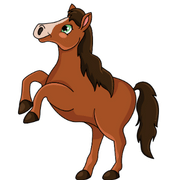 |
| 4. Pig | 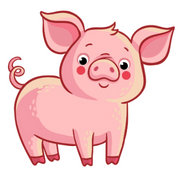 |
| 5. Sheep | 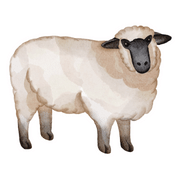 |
| 6. Cow | 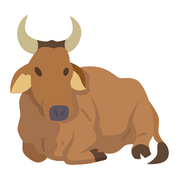 |
| 7. Duck | 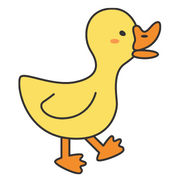 |
| 8. Lion | 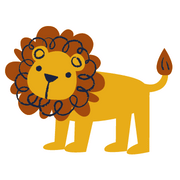 |
| 9. Elephant | 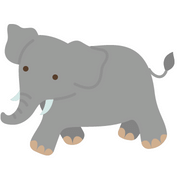 |
| 10. Tiger | 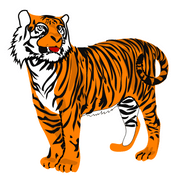 |
Fruits Words for Beginners
| 1. Apple |  |
| 2. Banana |  |
| 3. Orange |  |
| 4. Watermelon | 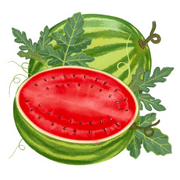 |
| 5. Grape | 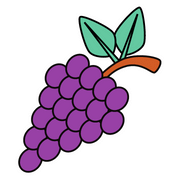 |
| 6. Strawberry | 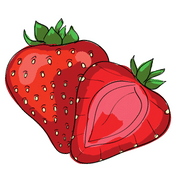 |
| 7. Pineapple | 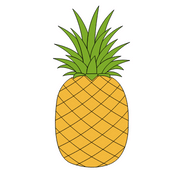 |
| 8. Mango |  |
| 9. Cherry | 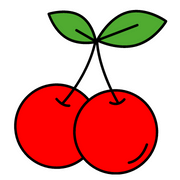 |
| 10. Lemon | 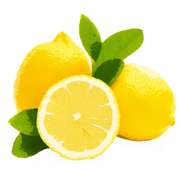 |
Colors Words for Beginners
| 1. Red |  |
| 2. Blue |  |
| 3. Green |  |
| 4. Yellow |  |
| 5. Cyan |  |
| 6. Purple |  |
| 7. Orange | 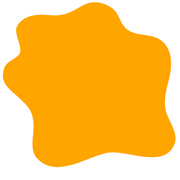 |
| 8. Brown |  |
| 9. Pink |  |
| 10. Black |  |
Transportation Words for Beginners
| 1. Plane |  |
| 2. Car | 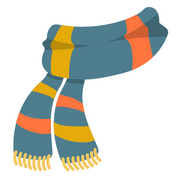 |
| 3. Train | 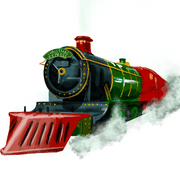 |
| 4. Bus |  |
| 5. Boat |  |
| 6. Bicycle |  |
| 7. Helicopter | 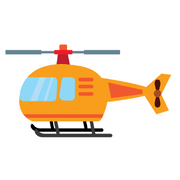 |
| 8. Motorcycle | 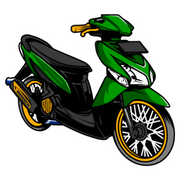 |
| 9. Subway | 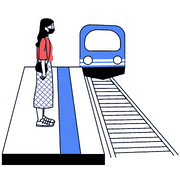 |
| 10. Taxi | 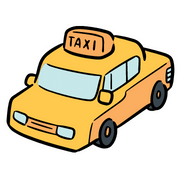 |
Kitchen Words for Beginners
| 1. Plate |  |
| 2. Bowl |  |
| 3. Spatula |  |
| 4. Knife | 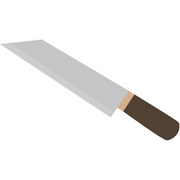 |
| 5. Fork | 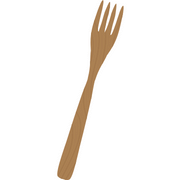 |
| 6. Spoon |  |
| 7. Chopping board | 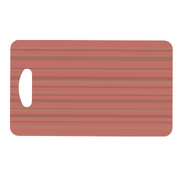 |
| 8. Refrigerator | 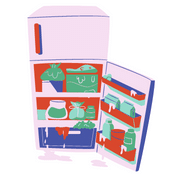 |
| 9. Oven | 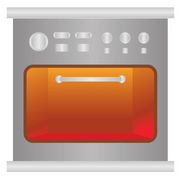 |
| 10. Stove | 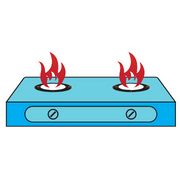 |
Vegetable Words for Beginners
| 1. Potato |  |
| 2. Carrot | 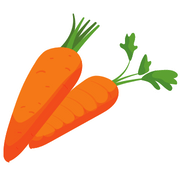 |
| 3. Onion | 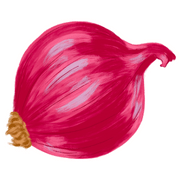 |
| 4. Broccoli |  |
| 5. Cauliflower | 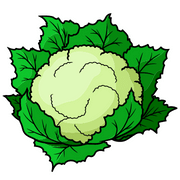 |
| 6. Spinach |  |
| 7. Cucumber | 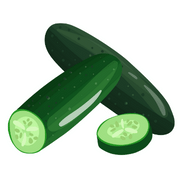 |
| 8. Tomato | 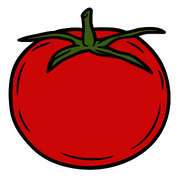 |
| 9. Garlic | 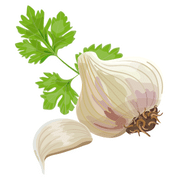 |
| 10. Peas | 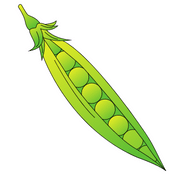 |
Shopping Words for Beginners
| 1. Cashier |  |
| 2. Customer |  |
| 3. Cart | 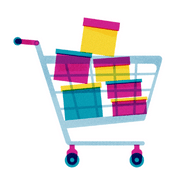 |
| 4. Bill |  |
| 5. Shop | 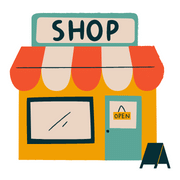 |
| 6. Store |  |
| 7. Mall |  |
| 8. Discount |  |
| 9. Bargain |  |
| 10. Receipt | 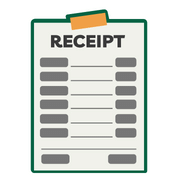 |
Clothing Words for Beginners
| 1. Shirt | 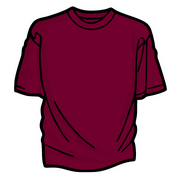 |
| 2. Dress | 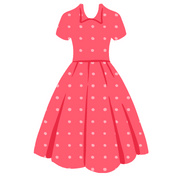 |
| 3. Jeans | 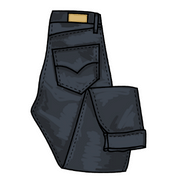 |
| 4. Shorts | 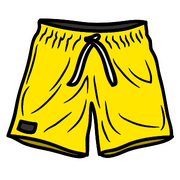 |
| 5. Hat |  |
| 6. Jacket | 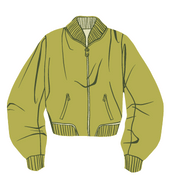 |
| 7. Shoes | 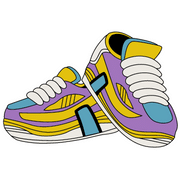 |
| 8. Scarf |  |
| 9. Socks |  |
| 10. Gloves | 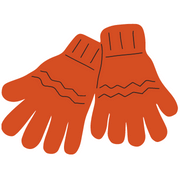 |
Sports Words for Beginners
| 1. Soccer | 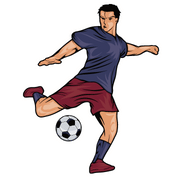 |
| 2. Baseball |  |
| 3. Basketball |  |
| 4. Volleyball |  |
| 5. Tennis |  |
| 6. Swimming | 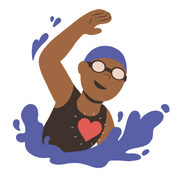 |
| 7. Running | 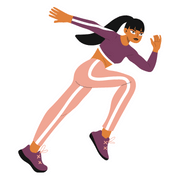 |
| 8. Skiing | 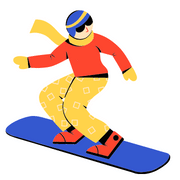 |
| 9. Golf |  |
| 10. Cycling |  |
Nature Words for Beginners
| 1. Forest |  |
| 2. Tree |  |
| 3. Animal | 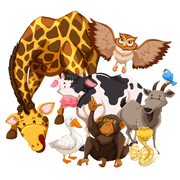 |
| 4. Sky |  |
| 5. Cloud |  |
| 6. Sun |  |
| 7. Moon |  |
| 8. Star |  |
| 9. Flower |  |
| 10. Mountain |  |
Worksheets for Beginners
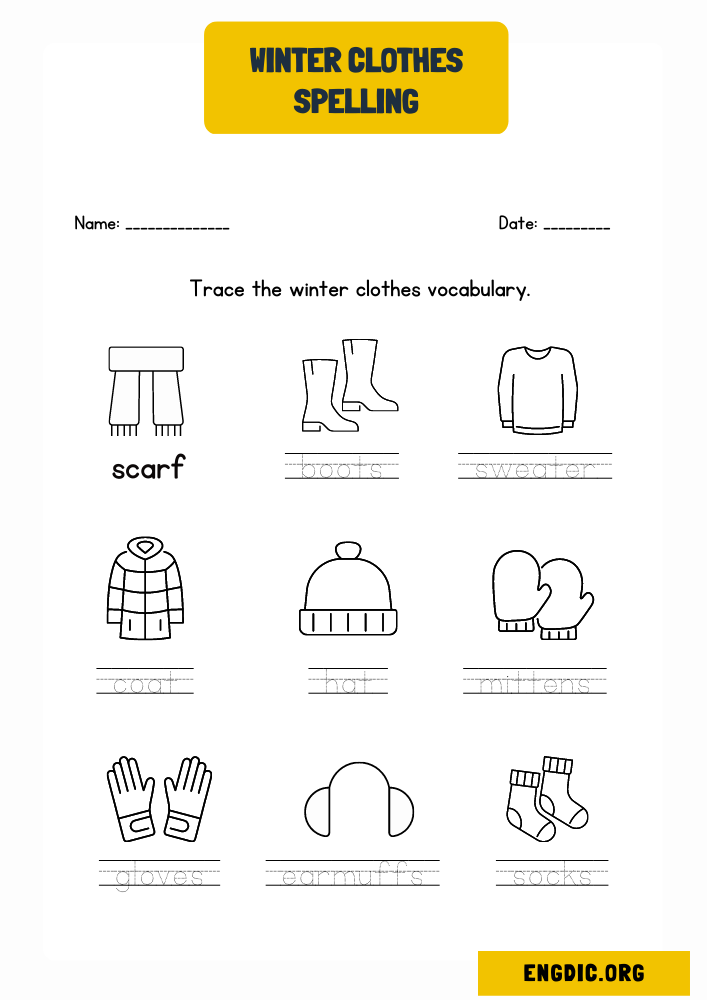

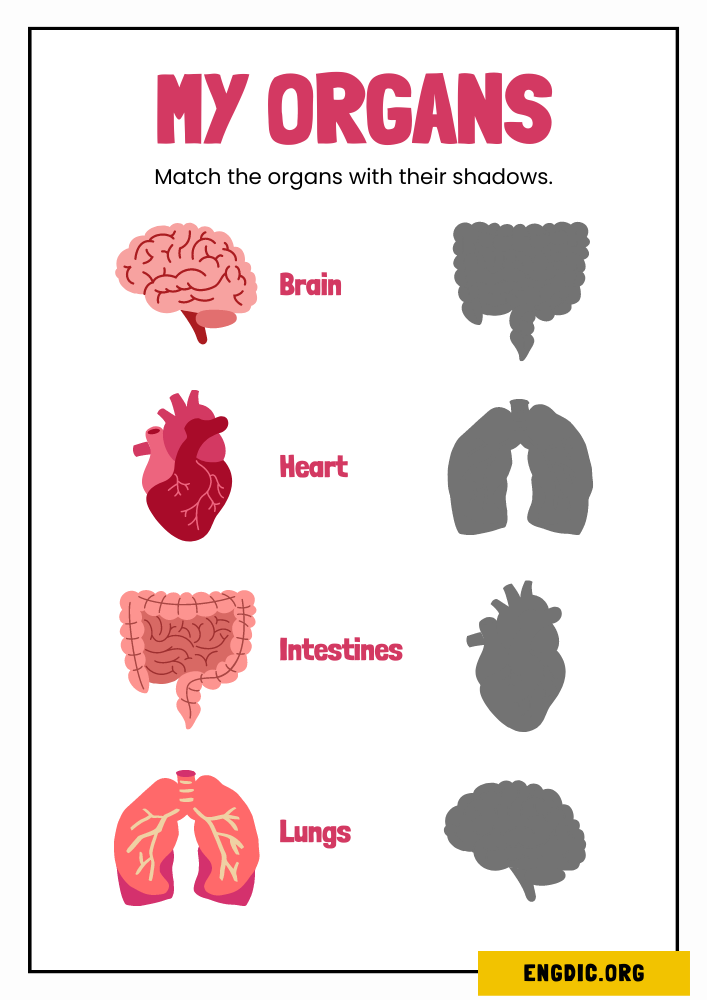
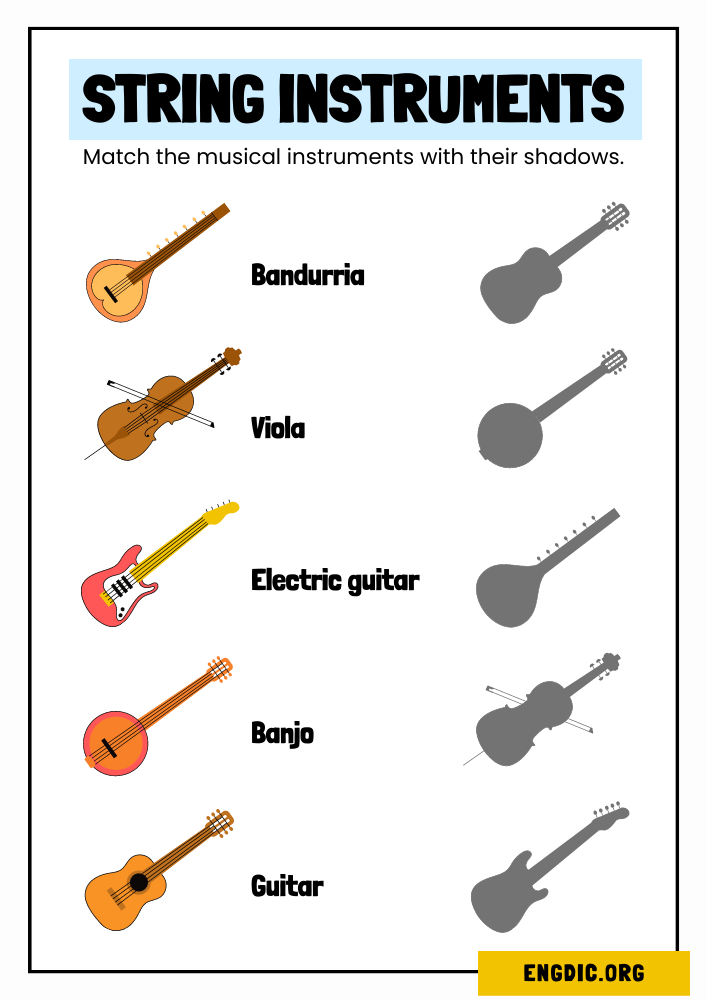
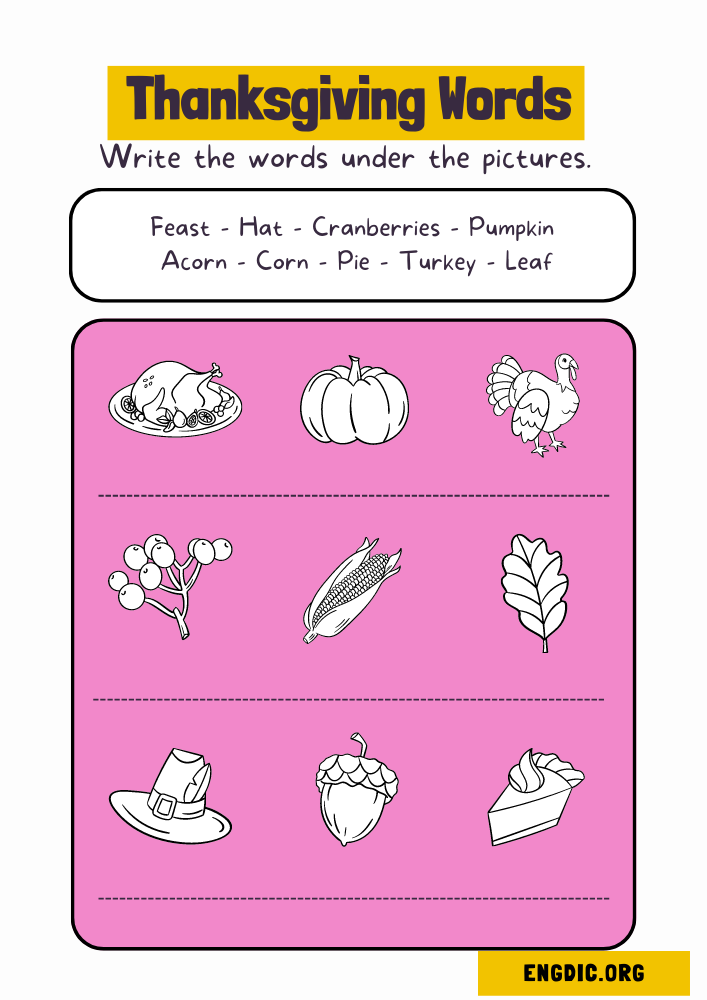
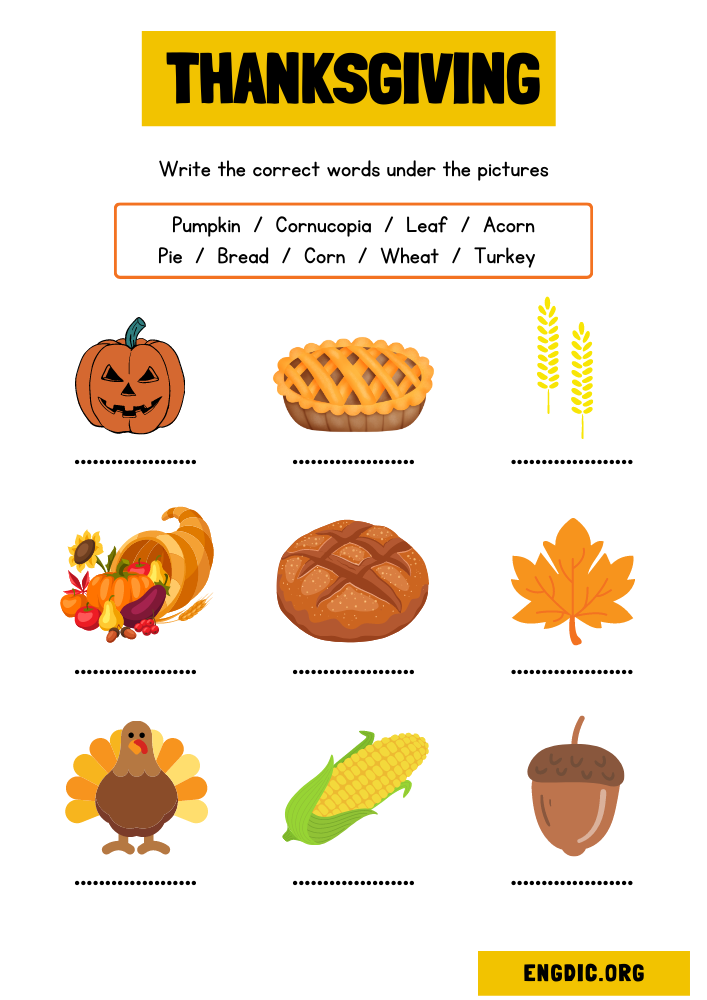
Unit 1 — The Lion and the Rabbit
Unit 2 — The Laboratory
Unit 3 — The Report
Unit 4 — The Dog’s Bell
Unit 5 — The Jackal and the Sun Child
Unit 6 — The Friendly Ghost
Unit 7 — The Best Prince
Unit 8 — How the Sun and the Moon Were Made
Unit 9 — The Starfish
Unit 10 — The First Peacock
Unit 11 — Princess Rose and the Creature
Unit 12 — The Crazy Artist
Unit 13 — The Farmer and the Cats
Unit 14 — A Magical Book
Unit 15 — The Big Race
Unit 16 — Adams County’s Gold
Unit 17 — The Race of Water
Unit 18 — The Little Red Chicken
Unit 19 — Shipwrecked
Unit 20 — The Seven Cities of Gold
Unit 21 — Katy
Unit 22 — A Better Reward
Unit 23 — The Camp
Unit 24 — A Strong Friendship
Unit 25 — Joe’s Pond
Unit 26 — Archie and His Donkey
Unit 27 — The Spider and the Bird
Unit 28 — The Party
Unit 29 — How the World Got Light
Unit 30 — Cats and Secrets
A: “Have you seen Clara today?”
B: “Yeah! She was at the…uhm…the…the community center.”
Have you ever had this happen to you during a conversation?
Forgetting the word for something is common enough in one’s native language, but it can become a real struggle when speaking a foreign language.
Vocabulary is the most essential element in being able to communicate with others. Knowing just a couple hundred words can help you express your needs and wants and allow you to talk with others.
In this article, we’ll introduce 245 basic English words for beginners. These are words that you should know at the beginner level (levels A1 and A2 of the CEFR scale). You will hear and use the words on this list every day!
Many of these words may be familiar to you already, and some of them may be new to you. We recommend taking note of any words you don’t recognize and adding them to a flashcard deck.
Let’s get started.
A good vocabulary will help you communicate effectively in English and make friends!
Table of Contents
- Pronouns
- Numerals
- Nouns
- Verbs
- Adjectives
- Conjunctions
- Final Thoughts
1. Pronouns
The first set of words you should add to your English vocabulary are pronouns. Many learners struggle to learn them, but they serve a few important functions. Pronouns are the words we use in place of nouns to make sentences smoother and to avoid redundancy of proper nouns.
- → You can hear the pronunciation of different pronouns on our vocabulary list of the Most Useful Pronouns and learn how to use them in our Comprehensive Guide to English Pronouns.
Personal
#1
| I | I make soup. |
#2
| You [s] | You make soup. |
#3
| He / She / It | He makes soup. |
#4
| We | We make soup. |
#5
| You [p] | You make soup. |
#6
| They | They make soup. |
I make soup.
Demonstrative
#7
| This | What is this? |
#8
| That | What is that? |
#9
| These | What are these? |
#10
| Those | What are those? |
What is that?
Interrogative
#11
| What | What does it mean? |
#12
| Who | Who are you? |
#13
| Where | Where is the bathroom? |
#14
| When | When is the meeting? |
#15
| Why | Why did you leave early? |
#16
| How | How do you feel? |
Interrogative pronouns help you ask questions.
Reflexive
#17
| Myself | I ate the pizza myself. |
#18
| Yourself | Where do you see yourself in ten years? |
#19
| Himself | He needs to take better care of himself. |
#20
| Herself | She went to the mall by herself. |
#21
| Ourselves | We were ashamed of ourselves. |
#22
| Yourselves | What will you do with yourselves? |
#23
| Themselves | They ate the whole pie themselves. |
They ate the whole pie themselves.
2. Numerals
Numbers are everywhere, so it’s important that you know how to read numbers and talk about numbers out loud.
- → You can find a few more numbers in our Numbers vocabulary list and learn how to use them in our article Numbers in English.
#24
| One (1) | I’ll have one cookie, please. |
#25
| Two (2) | I’ll have two cookies, please. |
#26
| Three (3) | I’ll have three cookies, please. |
#27
| Four (4) | I’ll have four cookies, please. |
#28
| Five (5) | I’ll have five cookies, please. |
#29
| Six (6) | I’ll have six cookies, please. |
#30
| Seven (7) | I’ll have seven cookies, please. |
#31
| Eight (8) | I’ll have eight cookies, please. |
#32
| Nine (9) | I’ll have nine cookies, please. |
#33
| Ten (10) | I’ll have ten cookies, please. |
I’ll have seven cookies, please.
3. Nouns
Nouns are the most important English words for beginners to learn. Even if you have a limited vocabulary, nouns can help you get your point across.
In English, there are common nouns and proper nouns. Common nouns simply label an object or idea (boy, park, month). Proper nouns give a specific name to a common noun (Jim, Eisenhower Park, October). As you will notice, proper nouns are capitalized in English.
You will see both types of nouns on this list.
- → Learn 100+ Must-Know Nouns in English with us and significantly expand your vocabulary!
People
#34
| People | Who are those people? |
#35
| Man | That man is wearing a hat. |
#36
| Woman | That woman is wearing a scarf. |
#37
| Child | That child is playing a game. |
#38
| Husband | This is my husband, Roger. |
#39
| Wife | This is my wife, Ellen. |
#40
| Son | Here is our son, Thomas. |
#41
| Daughter | Here is our daughter, Susan. |
#42
| Grandmother | Is Grandmother doing well? |
#43
| Grandfather | Is Grandfather doing well? |
#44
| Brother | I have a younger brother. |
#45
| Sister | I also have a younger sister. |
#46
| Siblings | They are my siblings. |
This is my wife, Ellen.
Occupations
#47
| Work | That was hard work. |
#48
| Job | Do you have a job? |
#49
| Occupation | What is your occupation? |
#50
| Lawyer | Steve is a lawyer. |
#51
| Farmer | Sue is a farmer. |
#52
| Engineer | He is an engineer. |
#53
| Mechanic | She is a mechanic. |
#54
| Electrician | He wants to be an electrician. |
#55
| Designer | She wants to be a designer. |
#56
| Gardener | Her mother is a gardener. |
#57
| Doctor | His father was a doctor. |
#58
| Pharmacist | Polly works as a pharmacist. |
#59
| Plumber | David works as a plumber. |
#60
| Barber | David’s brother is a barber. |
#61
| Salesperson | Polly’s sister is a salesperson. |
#62
| Clerk | You are a good clerk. |
His father was a doctor.
Time
#63
| Time | What time is it? |
#64
| Second | A second is a very short unit of time. |
#65
| Minute | A minute is sixty seconds. |
#66
| Hour | An hour is sixty minutes. |
#67
| Day | What day is this? |
#68
| Week | I made cookies last week. |
#69
| Month | What are you doing next month? |
#70
| Year | Next year is full of opportunities. |
#71
| Monday | Monday is the first day of the work week. |
#72
| Tuesday | Tuesday is the second day of the work week. |
#73
| Wednesday | Wednesday is the third day of the work week. |
#74
| Thursday | Thursday is the fourth day of the work week. |
#75
| Friday | Friday is the fifth day of the work week. |
#76
| Saturday | Saturday is the first day of the weekend. |
#77
| Sunday | Sunday is the second day of the weekend. |
#78
| January | January is the first month. |
#79
| February | February is the second month. |
#80
| March | March is the third month. |
#81
| April | April is the fourth month. |
#82
| May | May is the fifth month. |
#83
| June | June is the sixth month. |
#84
| July | July is the seventh month. |
#85
| August | August is the eighth month. |
#86
| September | September is the ninth month. |
#87
| October | October is the tenth month. |
#88
| November | November is the eleventh month. |
#89
| December | December is the twelfth month. |
Body Parts
#90
| Head | My head hurts. |
#91
| Face | You have a pretty face. |
#92
| Neck | Her neck is sore. |
#93
| Shoulder | She dislocated her shoulder. |
#94
| Chest | Are you having chest pains? |
#95
| Arm | What happened to his arm? |
#96
| Hand | Let me see your hand. |
#97
| Finger | I cut my finger chopping vegetables. |
#98
| Leg | Don’t put pressure on your leg. |
#99
| Foot | Which foot did you hurt? |
#100
| Toe | I stubbed my toe. |
#101
| Stomach | My stomach is rumbling. |
#102
| Back | Sitting too much is bad for your back. |
Her neck is sore.
Food
#103
| Vegetable | Broccoli is my favorite vegetable. |
#104
| Fruit | Avocado is my favorite fruit. |
#105
| Grain | Quinoa is a healthy grain. |
#106
| Meat | She doesn’t eat meat. |
#107
| Dairy | Milk and cheese are dairy products. |
#108
| Egg | Crack the egg in the bowl. |
#109
| Oil | Put oil in the pan. |
#110
| Butter | Melt the butter in the microwave. |
#111
| Salt | Add salt to taste. |
#112
| Pepper | Add pepper to taste. |
Add salt to taste.
Around Town
#113
| Hospital | He is sick in the hospital. |
#114
| Supermarket | Can you pick up milk at the supermarket? |
#115
| School | I don’t want to go to school. |
#116
| Downtown | We can meet up downtown. |
#117
| Movie theater | We saw a film at the movie theater. |
#118
| Jail / Prison | She was taken to jail yesterday for a crime. |
#119
| Library | You must be quiet in the library. |
#120
| Community center | Our community center has a pool. |
#121
| Park | She took her son to the park. |
#122
| Restaurant | The food at the restaurant was wonderful! |
#123
| Mall | We can buy clothes at the mall. |
#124
| Car | You must travel there by car. |
#125
| Road | He walked up the road. |
#126
| Street | Make a left on the next street. |
#127
| Train | You must travel there by train. |
#128
| Bus | You must travel there by bus. |
Can you pick up milk at the supermarket?
School and Office
#129
| Desk | Ryan sat at his desk. |
#130
| Chair | Lily bought a new chair yesterday. |
#131
| Pencil | I need to sharpen this pencil. |
#132
| Pen | That pen is out of ink. |
#133
| Notebook | The notebook is full. |
#134
| Book | Turn to page 228 in your book. |
#135
| Paperclip | May I have a paperclip? |
#136
| Stapler | Use the stapler to keep the pages in order. |
#137
| Drawer | Put your sack lunch in the drawer. |
#138
| Cabinet | There’s more glue in the cabinet. |
#139
| Folder | Place the assignment in your folder. |
#140
| File | Which computer file do I open? |
#141
| Computer | This computer isn’t working. |
#142
| Keyboard | This keyboard is missing a letter. |
#143
| Mouse | I use an ergonomic mouse every day. |
#144
| Have you received my email? |
This computer isn’t working.
4. Verbs
When you use verbs and nouns together, you can form a complete sentence. Here are some of the most common English beginner verbs.
- → We list plenty of verbs here, but if you want to learn more, read our article on 100+ Verbs in English!
Daily Routine
#145
| Get up | I get up at six every morning. |
#146
| Brush (one’s) teeth | You should brush your teeth every day. |
#147
| Comb (one’s) hair | Did Peter comb his hair today? |
#148
| Get cleaned up | I should get cleaned up before dinner. |
#149
| Bathe | Does Emma bathe often? |
#150
| Shower | I shower after a workout. |
#151
| Eat | Lacy doesn’t eat much. |
#152
| Drink | I drink black tea in the morning. |
#153
| Go to work | What time do you go to work? |
#154
| Go to school | Do you still go to school? |
#155
| Work | I don’t like to work on the weekend. |
#156
| Study | Dan wants to study nutrition. |
#157
| Drive | Can Wendy drive yet? |
#158
| Ride | May I ride with you to work? |
#159
| Sleep | She needs to sleep more. |
You should brush your teeth every day.
Other Common Verbs
#160
| Give | Let me give you this present. |
#161
| Get | Can you get the remote for me? |
#162
| Bring | Did you bring her the flowers? |
#163
| Return | Eric forgot to return the library book. |
#164
| Do | Does Sherri do yoga? |
#165
| Use | How do you use that device? |
#166
| Make | Tori makes dinner every night. |
#167
| Can | I can speak a little Spanish. |
#168
| Put | Where did you put the scissors? |
#169
| Let | Why won’t he let me help? |
#170
| Leave | The angry man was asked to leave. |
#171
| Ask | May I ask you a question? |
#172
| Tell | She promised not to tell the secret. |
#173
| Talk | Harry and Helen need to talk. |
#174
| Find | Did you find your cell phone yet? |
#175
| Greet | He didn’t greet me. |
#176
| Smile | You should smile more. |
#177
| Run | They run together every morning. |
#178
| Sit | Where can I sit? |
#179
| Lie down | He is sick and needs to lie down. |
#180
| Rest | After the hike, she needed to rest. |
#181
| Cook | Do you know how to cook? |
#182
| Read | I like to read books sometimes. |
#183
| Write | It is hard to write a book. |
#184
| Go out | I need to go out to the grocery store. |
#185
| Shop | Lucy shops at the mall often. |
#186
| Buy | We need to buy more clothing. |
#187
| Watch | They watch movies at night. |
#188
| Listen | I listen to music while I work. |
#189
| Feel | She feels sad today. |
#190
| Think | They think it’s a bad idea. |
#191
| Agree | Do you agree with them? |
#192
| Disagree | I disagree with them. |
#193
| Open | What time does the coffee shop open? |
#194
| Close | Please close the door. |
They run together every morning.
5. Adjectives
Adjectives are used to describe nouns. Here are the most useful English beginner adjectives.
- → If these aren’t enough for you, read our article on 100+ Adjectives in English!
Describing Objects
#195
| Big | Arizona has big spiders. |
#196
| Small | Our neighbor’s dog is small. |
#197
| Long | This is a long list of words. |
#198
| Short | He read a short book. |
#199
| Round | The basketball is round. |
#200
| Flat | The ground here is flat. |
#201
| Narrow | He made a narrow escape from prison. |
#202
| Wide | That road is very wide. |
#203
| Hard | My desk is hard. |
#204
| Soft | The blanket is soft. |
#205
| Light | The sky is light blue. |
#206
| Dark | It will be dark outside soon. |
#207
| Cheap | These pencils are cheap. |
#208
| Expensive | That sofa is expensive. |
The basketball is round.
Describing People
#209
| Good | He is a good person. |
#210
| Bad | She is a bad person. |
#211
| Pretty | Sarah looks very pretty. |
#212
| Handsome | Richard looks very handsome. |
#213
| Tall | That boy is tall. |
#214
| Short | The other boy is short. |
#215
| Thin | Karen is too thin; she should eat more. |
#216
| Fat | Mike is too fat; he should exercise more. |
#217
| Kind | Linda is a kind person. |
#218
| Mean | Quinten is a mean person. |
#219
| Polite | Mary is always polite to others. |
#220
| Rude | Elliot is rude to his mother. |
Linda is a kind person.
Describing Emotions
#221
| Happy | Eating good food makes me happy. |
#222
| Sad | Kelly is sad after her breakup. |
#223
| Angry | Louis becomes angry too easily. |
#224
| Tired | They were tired after work. |
#225
| Upset | I was upset when I spilled the soup. |
#226
| Excited | Cecilia was excited for the camping trip. |
Kelly is sad after her breakup.
Describing Weather
#227
| Sunny | Today it was sunny. |
#228
| Cloudy | Washington is always cloudy. |
#229
| Rainy | I don’t go outside when it’s rainy. |
#230
| Foggy | It was too foggy to drive. |
#231
| Windy | The trees bend when it’s windy. |
#232
| Hot | The desert is very hot. |
#233
| Cold | It gets cold in the winter. |
#234
| Warm | It is warm where I live. |
#235
| Cool | The autumn air is cool. |
It was too foggy to drive.
6. Conjunctions
Conjunctions are small words that allow you to connect two or more clauses to each other. Due to their essential role in language, they’re among the most important words every English beginner must know. Here are a few common ones.
- → Study our article What is a Conjunction in English Grammar? to learn more about how these little words work!
#236
| And | I love chocolate and red wine. |
#237
| But | He likes fruit, but not bananas. |
#238
| Or | Do you want Chinese food or Mexican food? |
#239
| If | If he says yes, then I will be happy. |
#240
| Then | If he says yes, then I will be happy. |
#241
| Because | We left early because of an appointment. |
#242
| So | Mark lied so he wouldn’t get in trouble. |
#243
| Before | I eat breakfast before work. |
#244
| After | I make dinner after work. |
#245
| Than | She likes cake more than Nina does. |
He likes fruit, but not bananas.
7. Final Thoughts
You just read 245 simple English words for beginners and saw them used in sentences. What are your thoughts? Were any of these words new to you?
The best way to memorize them is to create your free lifetime account with EnglishClass101.com and add them to your Flashcards. Our spaced repetition flashcard system is a proven method for easily memorizing new words. You can also create your own flashcards using index cards or another online system.
Alternatively, you can write these words on sticky notes and place them around your house on the object they identify or describe. This will help you quickly start to associate the word with its definition because you’ll see the words all day long!
We know that learning new vocabulary can be hard. But we encourage you not to give up! EnglishClass101 will be here with you every step of the way with help and useful resources.
Keep studying and practicing so that you’ll be ready for our upcoming articles on Intermediate Words and Advanced Words!
Happy learning and stay safe out there.

This is a topic that I discuss with my students all the time. When deciding to learn a new language, it is important to know where to start. More than likely, you will start asking a bunch of questions.
What words are the most useful to know in the very beginning? What expressions are a must? Am I going to be able to pronounce all the different sounds correctly?
That being said, here is my definitive list of the best English words to practice as a beginner, along with their corresponding sounds, as mentioned in one of my previous articles, How to Speak English — The Ultimate Guide to English Pronunciation.
If you are unsure how to pronounce a specific word, just click on it to listen to its pronunciation.
Words with Vowels
As always, we’re going to start with vowels. What is worth noting again is that all English vowels have a long, short, schwa, and a diphthong version of their sounds.
However, to make matters easier for you, I will only focus on the long and short sound versions for each individual vowel and have the schwa and diphthong sounds as separate ones at the end of the vowel list. Also, the letter y can sound as both a vowel and a consonant, so expect to find it twice on the list.
Let’s get into it!
The long «a» sound /ɑ:/
Example #1: car
female voice
male voice
Example #2: park
female voice
male voice
Example #3: father
female voice
male voice
Example #4: March
female voice
male voice
Example #5: large
female voice
male voice
Quick tip: Do not draw the «a» sound for too long, as you many end up saying something like «farther» (with the British English «r») instead of «father». It’s the long «a» sound, not too long.
The short «a» sound /ʌ/
Example #1: cup
female voice
male voice
Example #2: lump
female voice
male voice
Example #3: bus
female voice
male voice
Example #4: bulb
female voice
male voice
Example #5: funny
female voice
male voice
Even though the vowel «u» is predominantly used here, its specificity lies in its tendency to sound like a very quick, short «a» vowel sound when it is found in one- or two-syllable words.
The long «e» sound /æ/
Example #1: and
female voice
male voice
Example #2: back
female voice
male voice
Example #3: black
female voice
male voice
Example #4: cat
female voice
male voice
Example #5: clap
female voice
male voice
Note: English does not necessarily have a long «e» sound, but more of a mix between «a» and «e». The phonetic symbol of this sound is /æ/. It may be very hard for some folks to pronounce correctly. However, practice makes perfect.
The short «e» sound /ɛ/
Example #1: hello
female voice
male voice
Example #2: pet
female voice
male voice
Example #3: chest
female voice
male voice
Example #4: mess
female voice
male voice
Example #5: yes
female voice
male voice
Note: Even though the pronunciation difference between a long and short «e» sound is just a few milliseconds, the difference in word meanings is much greater, e.g. «pat» vs. «pet» or «bat» vs. «bet».
The long «i» sound /i:/
Example #1: ski
female voice
male voice
Example #2: green
female voice
male voice
Example #3: mean
female voice
male voice
Example #4: clean
female voice
male voice
Example #5: clear
female voice
male voice
Note how the long «i» vowel sound rarely appears with the vowel «i».
The short «i» sound /ɪ/
Example #1: wish
female voice
male voice
Example #2: clip
female voice
male voice
Example #3: kitten
female voice
male voice
Example #4: skin
female voice
male voice
Example #5: milk
female voice
male voice
Note: Just like in the case of long and short «e» vowel sounds, the same goes for «i». The difference in word meanings could be huge, e.g. «re-peat» vs. «pit» or «meal» vs «mill».
The long «o» sound /ɔː/
Example #1: afford
female voice
male voice
Example #2: thought
female voice
male voice
Example #3: lawn
female voice
male voice
Example #4: naughty
female voice
male voice
Example #5: lord
female voice
male voice
Note: I’ve seen plenty of sources out there that label words such as «only» and «mode» as ones with the long «o» vowel sound. That isn’t necessarily true because they don’t contain just the «o» vowel sound but a diphthong with «o».
Anyway, we’ll get into that in just a second. Sit tight.
The short «o» sound /ɒ/
Example #1: hot
female voice
male voice
Example #2: not
female voice
male voice
Example #3: sock
female voice
male voice
Example #4: rock
female voice
male voice
Example #5: top
female voice
male voice
Note: Short words with a quick pronunciation — it’s as simple as that.
The long «u» sound /uː/
Example #1: who
female voice
male voice
Example #2: too
female voice
male voice
Example #3: cool
female voice
male voice
Example #4: school
female voice
male voice
Example #5: move
female voice
male voice
If you want to be cool, you have to know how to pronounce the word «cool». Hint: it’s with a long «u» vowel sound.
The short «u» sound /ʊ/
Example #1: June
female voice
male voice
Example #2: push
female voice
male voice
Example #3: pull
female voice
male voice
Example #4: sugar
female voice
male voice
Example #5: book
female voice
male voice
Note: Being that most short words with the vowel «u» are not pronounced with the «u» vowel sound, be careful not to confuse words such as «cup», «bus», «funny», etc. with the ones above, as they are quite similar on paper but totally different in pronunciation and meaning.
The «y» vowel sound
Example #1: funny
female voice
male voiceords)
Example #2: sunny
female voice
male voice
Example #3: rainy
female voice
male voice
Example #4: fly
female voice
male voice
Example #5: sky
female voice
male voice
Note: When it is found at the end of a word, particularly all adverbs ending with «-ly», «y» is usually pronounced as the vowel sound /i/ or as a diphthong.
As promised, I’ve saved the best for last. Now, let us cover the basic words with the schwa sound and a diphthong real quick.
The «schwa» sound /ə/
Example #1: the «a» in «about»
female voice
male voice
Example #2: the «e» in «water»
female voice
male voice
Example #3: the «i» in «pencil»
female voice
male voice
Example #4: the «o» in «lemon»
female voice
male voice
Example #5: the «u» in «nature»
female voice
male voice
Despite being the only English sound that exerts zero energy to pronounce, the schwa /ə/ can be quite confusing at times, as it can act as any other vowel sound. Nonetheless, you’ll get the hang of it through proper practice.
The Diphthong
A diphthong, by definition, is a combination of two vowels. Essentially, it is one vowel letter pronounced as two vowel sounds. The list of examples here can go on for days, but I’ll keep it sweet and short for you, just like with any other sound here today.
Example #1: «light» with /aɪ/
female voice
male voice
Example #2: «sky» with /aɪ/
female voice
male voice
Example #3: «fake» with /eɪ/
female voice
male voice
Example #4: «no» with /əʊ/
female voice
male voice
Example #5: «town» with /aʊ/
female voice
male voice
Note: You don’t necessarily notice diphthongs when pronouncing a word because it is something you automatically do, but it’s definitely worth knowing that there is not just one vowel sound there, but two.
With that being said, let us now travel to the world of English consonant sounds and their corresponding words.
Words with Consonants
Unlike vowels, English consonants are much easier to get around. The following word list does not contain any huge variations, speficic cases, or exceptional rules. It’s actually pretty straight-forward. Let’s get into it.
The «b» as in «beach»
Example #1: book
female voice)
male voice
Example #2: brick
female voice
male voice
Example #3: black
female voice
male voice
Example #4: beautiful
female voice
male voice
Example #5: back
female voice
male voice
The «c» as in «cook»
Example #1: cry
female voice
male voice
Example #2: come
female voice
male voice
Example #3: clean
female voice
male voice
Example #4: cookie
female voice
male voice
Example #5: cap
female voice
male voice
The «c» as in «civil»
Example #1: ceiling
female voice
male voice
Example #2: cement
female voice
male voice
Example #3: cedar
female voice
male voice
Example #4: cinnamon
female voice
male voice
Example #5: police
female voice
male voice
The «ch» as in «church»
Example #1: catch
female voice
male voice
Example #2: chair
female voice
male voice
Example #3: chase
female voice
male voice
Example #4: chapter
female voice
male voice
Example #5: champion
female voice
male voice
The «d» as in «daddy»
Example #1: Monday
female voice
male voice
Example #2: dear
female voice
male voice
Example #3: dance
female voice
male voice
Example #4: glad
female voice
male voice
Example #5: danger
female voice
male voice
The «f» as in «far»
Example #1: soft
female voice
male voice
Example #2: fly
female voice
male voice
Example #3: Friday
female voice
male voice
Example #4: find
female voice
male voice
Example #5: giraffe
female voice
male voice
The «g» as in «big»
Example #1: glory
female voice
male voice
Example #2: gate
female voice
male voice
Example #3: strong
female voice
male voice
Example #4: plague
female voice
male voice
Example #5: gig
female voice
male voice
The «g» as in «giant»
Example #1: gentle
female voice
male voice
Example #2: generation
female voice
male voice
Example #3: original
female voice
male voice
Example #4: Germany
female voice
male voice
Example #5: apology
female voice
male voice
The «h» as in «home»
Example #1: house
female voice
male voice
Example #2: behave
female voice
male voice
Example #3: hand
female voice
male voice
Example #4: his
female voice
male voice
Example #5: history
female voice
male voice
The «j» as in «joke»
Example #1: January
female voice
male voice
Example #2: just
female voice
male voice
Example #3: enjoy
female voice
male voice
Example #4: journey
female voice
male voice
Example #5: subject
female voice
male voice
The «k» as in «keep»
Example #1: book
female voice
male voice
Example #2: kiss
female voice
male voice
Example #3: market
female voice
male voice
Example #4: make
female voice
male voice
Example #5: kick
female voice
male voice
The «l» as in «land»
Example #1: clean
female voice
male voice
Example #2: low
female voice
male voice
Example #3: like
female voice
male voice
Example #4: fall
female voice
male voice
Example #5: salt
female voice
male voice
The «m» as in «mom»
Example #1: money
female voice
male voice
Example #2: information
female voice
male voice
Example #3: number
female voice
male voice
Example #4: woman
female voice
male voice
Example #5: family
female voice
male voice
The «n» as in «no»
Example #1: never
female voice
male voice
Example #2: man
female voice
male voice
Example #3: question
female voice
male voice
Example #4: new
female voice
male voice
Example #5: funny
female voice
male voice
The «kn» as in «know»
Example #1: know
female voice
male voice
Example #2: knife
female voice
male voice
Example #3: knee
female voice
male voice
Example #4: knight
female voice
male voice
Example #5: knit
female voice
male voice
The «p» as in «people»
Example #1: put
female voice
male voice
Example #2: problem
female voice
male voice
Example #3: place
female voice
male voice
Example #4: opinion
female voice
male voice
Example #5: help
female voice
male voice
The «q» as in «queen»
Example #1: quick
female voice
male voice
Example #2: consequence
female voice
male voice
Example #3: request
female voice
male voice
Example #4: quality
female voice
male voice
Example #5: question
female voice
male voice
The «r» as in «red»
Example #1: right
female voice
male voice
Example #2: rule
female voice
male voice
Example #3: car
female voice
male voice
Example #4: marry
female voice
male voice
Example #5: round
female voice
male voice
The «s» as in «send»
Example #1: past
female voice
male voice
Example #2: sit
female voice
male voice
Example #3: see
female voice
male voice
Example #4: pass
female voice
male voice
Example #5: post
female voice
male voice
The «sh» as in «crash»
Example #1: sheep
female voice
male voice
Example #2: shark
female voice
male voice
Example #3: sunshine
female voice
male voice
Example #4: posh
female voice
male voice
Example #5: wash
female voice
male voice
The «t» as in «take»
Example #1: top
female voice
male voice
Example #2: gate
female voice
male voice
Example #3: mountain
female voice
male voice
Example #4: tree
female voice
male voice
Example #5: hot
female voice
male voice
The «th» as in «think»
Example #1: thought
female voice
male voice
Example #2: Thursday
female voice
male voice
Example #3: everything
female voice
male voice
Example #4: three
female voice
male voice
Example #5: month
female voice
male voice
The «th» as in «this»
Example #1: there
female voice
male voice
Example #2: another
female voice
male voice
Example #3: together
female voice
male voice
Example #4: father
female voice
male voice
Example #5: mother
female voice
male voice
The «v» as in «vision»
Example #1: view
female voice
male voice
Example #2: love
female voice
male voice
Example #3: vehicle
female voice
male voice
Example #4: visit
female voice
male voice
Example #5: never
female voice
male voice
The «w» as in «wait»
Example #1: water
female voice
male voice
Example #2: swim
female voice
male voice
Example #3: win
female voice
male voice
Example #4: always
female voice
male voice
Example #5: wow
female voice
male voice
The «x» as in «tuxedo»
Example #1: box
female voice
male voice
Example #2: fox
female voice
male voice
female voice
male voice
Example #4: mix
female voice
male voice
Example #5: expect
female voice
male voice
The «y» as in «yellow»
Example #1: you
female voice
male voice
Example #2: year
female voice
male voice
Example #3: yes
female voice
male voice
Example #4: yesterday
female voice
male voice
Example #5: young
female voice
male voice
The «z» as in «zero»
Example #1: zebra
female voice
male voice
Example #2: size
female voice
male voice
Example #3: zone
female voice
male voice
Example #4: zoo
female voice
male voice
Example #5: crazy
female voice
male voice
Okay, that’s been about it! I certainly hope that your first steps as an English learner are going to be that much more secure and easier to have with these hand-picked word choices.
Now, all you have to do is practice, practice, pratice… and memorize.
Once you do that, I suggest you check out The Ultimate Guide to English Pronunciation to really master all the tips and tricks for achieving native-like English pronunciation through proper tongue placement, lip movements, and all that. Hope it helps!
I will be patiently waiting for you at the next stage. Until then… happy learning!

